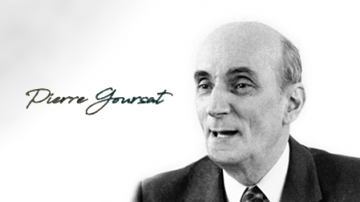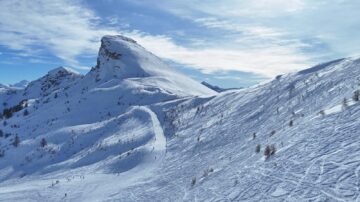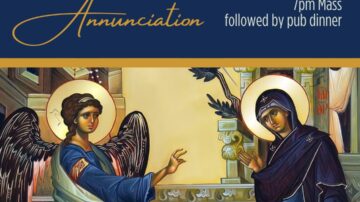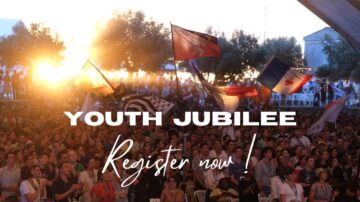Speaking of integral ecology implies going back to the sources to understand what it is all about. This is what Pierre-Yves Gomez, founder of the Zaccheus course, is proposing to us.
What does the Bible tell us about creation and man’s place in it? Is there a proper view of ecology?
What does ecology tell us about man and what does man make of ecology?
We may want to take care of nature for the wrong reasons:
The fear of a disaster. Thought like “Nature will take revenge if we don’t take care of it.” This fear is based on an archaic belief that sees nature as a kind of mother goddess. However, Nature is not a person: it is a system composed of objects, living beings in relationships. This belief in nature personified is resurgent today in some of the movements of ecology. We cannot take care of nature just because we are afraid of its power.
By obligation. Culture, convenience or social pressure sometimes force us to take care of nature without fully understanding the importance of this care. It is necessary
to do so because it has become politically correct. By “ecological selfishness”: one takes care of one’s small garden, one’s vegetable garden, one’s pets. This is already something, of course, but this ecological comfort is not enough to fully understand the spiritual meaning of respect for nature.
By “ecological selfishness”: one takes care of one’s small garden, one’s vegetable garden, one’s pets. This is already something, of course, but this ecological comfort is not enough to fully understand the spiritual meaning of respect for nature.

We are invited to take care of nature for good reasons
First of all by becoming aware that it is a gift. Everything that exists, this nature that surrounds us and welcomes us might not exist otherwise. All this is entirely free, given, entrusted. This double awareness is at the foundation of Christian ecology because it leads us to ask ourselves: “Who gives like this?
Science teaches us that the universe is delimited, with a beginning and an end. But who gave it to us? Nature teaches us that we are a creature among creatures. This invites us to an immense respect for all the other creatures we count among. Opening ourselves to the gift leads to a third awareness: being only a creature, we are not the owners of nature. We cannot without damage to ourselves use it as we please. And yet, placed at the summit of creation, we are also its managers. The glory of man is there: at the top, as a creature among creatures, he is responsible for the creation entrusted to him by God.
Christian ecology is rooted first and foremost in an understanding of the human being. If we are creatures, we are invited to receive from a Creator, and to ask ourselves “Who is this Creator?”
Ecology is not, therefore, simply a condescending care for nature. It implies a profound conversion of the individual, which is not a conversion TO ecology, but a conversion THROUGH ecology: by welcoming nature and the nature of other creatures, man understands his own nature, which is to cultivate a garden and to safeguard it towards a more correct vision of ecology.
To dominate, therefore, is to exercise the role of a master, who is like a father, over his domain. It means considering that we have to take care of the house entrusted to us in order to pass it on to our successors. Thus, exercising dominion over creation means "managing the common house" entrusted to us by the Creator, respecting it because it doesn't belong to us.
We are trustees of it so that others, present and future, may also enjoy it.

Having understood who the human is and what his place is, both humble (from humus, the earth) and central to creation, we can ask ourselves how to act in and on nature, we simple creatures, and how to adjust our action and respect for creation? Basically, it is a question of balancing two imperatives proper to the human condition: to take care of men and therefore to act on the environment, to cultivate the earth, to make it more fertile, safer, more comfortable; and, at the same time, to preserve the balance of the environment, not to compromise the future of other men, to remain a humble manager of a good of which one is not the owner but only the guardian.
If we cross these two imperatives, we obtain four types of behaviour that define the way man thinks about himself in nature. When we do not take care of man or nature, we are in a barbaric state. Barbarity can destroy both the environment and the human being.
We can be concerned about nature while being indifferent to human beings. What counts is “mother nature”, protecting and conserving it. It doesn’t matter if this is done at the expense of humans. This is ecological fundamentalism. We can take care of mankind generously without worrying about nature. This is what we can call economic fundamentalism.
The economy creates an artificial environment for man with objects that protect him and replace nature. This artificial environment is developed without any care for nature, for what is not useful to man. We can also take care of both nature and man. This is what Christians call integral ecology or human ecology. Integral ecology because it integrates the place of man in nature or human ecology because it reminds us that there is no ecology except in relation to the meaning that man gives to the environment that surrounds him. It is not an ecology in itself, it is always linked to man who is at the top of creation.
Man receives not only himself as a gift but also his environment. It is the logic of the double gift that leads to a double care: for man as well as for nature. As soon as we forget that we are created, that we cut ourselves off from creation, and therefore, from the Creator, we consider ourselves as the possessor of the universe and we risk falling either into economic fundamentalism, or into ecological fundamentalism, or even worse, into barbarity. To be an actor of creation, accepting to receive ourselves as a creature, it supposes exigency and humility.
We are called to transform our natural environment to make it juster, more beautiful, more secure in the name of care that we bring to men. At the same time, we receive this environment as a gift to be taken care of for itself, for the living beings and objects entrusted to us. Christian ecology invites us to embrace God’s loving gaze on each person and nature in all its expressions. To exercise dominion over creation is ultimately to act in the likeness of God.
Taking time to contemplate Nature and human beings
We are called to feel that we are creatures amid Creation. We are called to think like creatures amid Creation. To do this, let us take the time to dazzle and meditate before the presence of Nature. Every person, believer or not, has this ability to empathize with Nature. A sunset, a concert of birdsong, a starry sky awakens in us an astonishment, an admiration: there is something there in front of us, and I am there, and I might not be. This dazzling gaze towards Creation invites us to see beyond the one who created us. Contemplation of Nature is the oldest and most basic prayer: an admiring, joyful, praiseworthy wonder at what is given to us, entirely given, and freely given. Taking the time to contemplate Nature is the best way to learn to reflect on the men and women who are also given to us as actors in Creation.
Let’s take the time to say, at God’s remembrance: It’s beautiful, it’s good! “And God saw that it was good.” (Genesis 1), and when he had finished the work of Creation, that is to say, the whole Creation, God, saw that it was very good. At that moment, God contemplates his Creation with admiration, and we are invited to enter regularly into his joyful gaze. The very fact that we can embrace this gaze is a sign that we are made in the image and likeness of God.
Why so many deteriorations?
The erroneous behaviors that we have described (barbarism, ecological or economic fundamentalism) explain why, for two centuries, in particular, our environment has been seriously affected.
We could ask ourselves the causes that lead man to disrespect God’s work of creation. Indifference: “After me the flood; future generations will do well.” I act like nature did not exist in my daily life, as if it was neither given nor passed on. I live in an artificial environment, and I forget the natural environment that seems far away.
Fatalism. “I am not personally concerned. It is not me, in my corner, who can change anything to the problem of the planet.” This attitude reflects a lack of hope. I don’t think that my actions, where I live, can have even a small, even humble consequence, but it is enough for me to live my vocation as a human being more fully.
Idolatry = in the opposite direction, I impose precautions and recommendations on myself. You have to eat like that, use your car in such a way, etc.”. “These practices, of course, are necessary, but they must not become ends in themselves. They are only the means. The purpose is to receive this magnificent gift from nature and create harmony between man and nature. Artificial ecology, restricted, reduced to Pharisaic prescriptions instead of ecology opening me to God’s joy for the world.
Fanaticism = puritanism becomes fanaticism when one definitively loses the sense of gift. Legalism takes precedence over love for humans. In such a vision, one no longer attaches oneself to people, but only to their behavior, denounced as dangerous. Such a rejection of the other is the antithesis of giving, receiving, giving for free, and discouraging goodwill. These conditions are neither external nor foreign to us. They pass through our hearts and minds. To recover a right attitude implies a genuine conversion on our part, to come out of indifference, egoism, idolatry, fanatical temptation, to move towards a real sense of responsibility and a fair representation of what it is to be human, a creature among other creatures called to act and contemplate.
The remedy: Jesus at the heart of our environment
Mark 4:35-41:35: On the same day, when evening had come, He said to them, “Let us cross over to the other side.” Now when they had left the multitude, they took Him along in the boat as He was. And other little boats were also with Him. And a great windstorm arose, and the waves beat into the ship so that it was already filling. But He was in the stern, asleep on a pillow. And they awoke Him and said to Him, “Teacher, do You not care that we are perishing?” Then He arose and rebuked the wind and said to the sea, “Peace, be still!” And the wind ceased, and there was a great calm. But He said to them, “Why are you so fearful? How is it that you have no faith?” And they feared exceedingly, and said to one another, “Who can this be, that even the wind and the sea obey Him!”
In this scene from the Gospel, men are “embarked” in the raging elements. Their first reaction is a kind of ecological disaster: “We are going to disappear; nature is taking its revenge. Our little common boat, the boat of humanity, is going to be submerged?”
In this boat, Jesus sleeps. He is there, merely present. The disciples wake him up. He says to the wind and the sea: “Put yourself in your place!” He doesn’t want them to disappear; he doesn’t do a magic trick. He gets up to order things to be put back in their place, that harmony be restored. And that’s what happens.
This page of the Gospel brings to light the power of God: the power of harmony. And the text says, “And there was a great calm.” This calm is an echo of the harmony that has been restored. One imagines the disciples stunned, who take a moment to contemplate. In the middle of nature, the man is in his boat, every element is in its place, and Jesus is in the middle of all. And the disciples ask themselves: “Who is he, the one who dominates the parts, the master of the common house? “
Believers and men of goodwill, this is a question we all have to ask ourselves: who is he, this master (“good master”) of the cosmos, of our common house but also the boat of men?
Initially published in IEV n.335, October -December 2020







